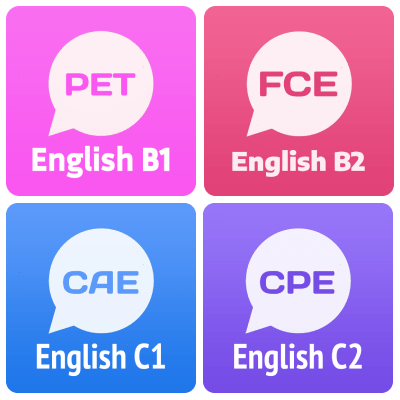Future Simple or Present Simple?
This comparison helps decide between using the Future Simple (for predictions) and the Present Simple (for scheduled events and timetables).
Back
Learn how to choose between the Future Simple and the Present Simple
When Should I Use The Present Simple Tense?
1. We use the present simple when something is generally or always true.
- People need food.
- It snows in winter here.
- Two and two make four.
2. Similarly, we need to use this tense for a situation that we think is more or less permanent. (See the present continuous for temporary situations.)
- Where do you live?
- She works in a bank.
- I don't like mushrooms.
3. The next use is for habits or things that we do regularly. We often use adverbs of frequency (such as 'often', 'always' and 'sometimes') in this case, as well as expressions like 'every Sunday' or 'twice a month'. (See the present continuous for new, temporary or annoying habits).
- Do you smoke?
- I play tennis every Tuesday.
- I don't travel very often.
4. We can also use the present simple for short actions that are happening now. The actions are so short that they are finished almost as soon as you've said the sentence. This is often used with sports commentary.
- He takes the ball, he runs down the wing, and he scores!
5. We use the present simple to talk about the future when we are discussing a timetable or a fixed plan. Usually, the timetable is fixed by an organisation, not by us.
- School begins at nine tomorrow.
- What time does the film start?
- The plane doesn't arrive at seven. It arrives at seven thirty.
6. We also use the present simple to talk about the future after words like ' 'when', 'until', 'after', 'before' and 'as soon as'. These are sometimes called subordinate clauses of time.
- I will call you when I have time. (Not 'will have'.)
- I won't go out until it stops raining.
- I'm going to make dinner after I watch the news.
7. We use the present simple in the first and the zero conditionals.
- If it rains, we won't come.
- If you heat water to 100 degrees, it boils.
When Should I Use The Future Simple Tense?
1. We use the future simple with 'will' to predict the future. It is the basic way we talk about the future in English, and we often use it if there is no reason to use another future tense. We can use it for future facts and for things that are less certain..
- The sun will rise at 7am.
- I think the Conservatives will win the next election.
2. Promises / requests / refusals / offers. This is sometimes called 'volitional' will. It's about wanting to do something or not wanting to do something in the future.
- I'll help you with your homework.
- Will you give me a hand?
- I won't go!
3. In a similar way, we often use 'will' when we're talking about a decision at the moment of speaking. We are usually making an offer or promise or talking about something that we want to do.
- A: I'm cold. B: I'll close the window.
4. We use the simple future with 'will' in the first conditional, and in other sentences that have a conditional feeling.
- If it doesn't rain, we'll go to the park.
- Let's arrive early. That will give us time to relax.
Shall
1. 'Shall' is used mainly in the forms 'shall I?' and 'shall we?' in British English. These forms are used when you want to get someone's opinion, especially for offers and suggestions.
- Shall I open the window? (= Do you want me to open the window?)
- Where shall we go tonight? (= What's your opinion?)
Be going to
1. We often use 'be going to' to talk about our future intentions and plans. We have usually made our plans before the moment of speaking.
- A: We've run out of milk. B: I know, I'm going to buy some.
2. We can also use 'be going to' to make a prediction about the future. Often it's possible to use both 'be going to' and 'will' but it's more common to use 'be going to' if we can see evidence in the present.
- Look at those boys playing football! They're going to break the window.
- The sky is getting darker and darker. It's going to rain.
